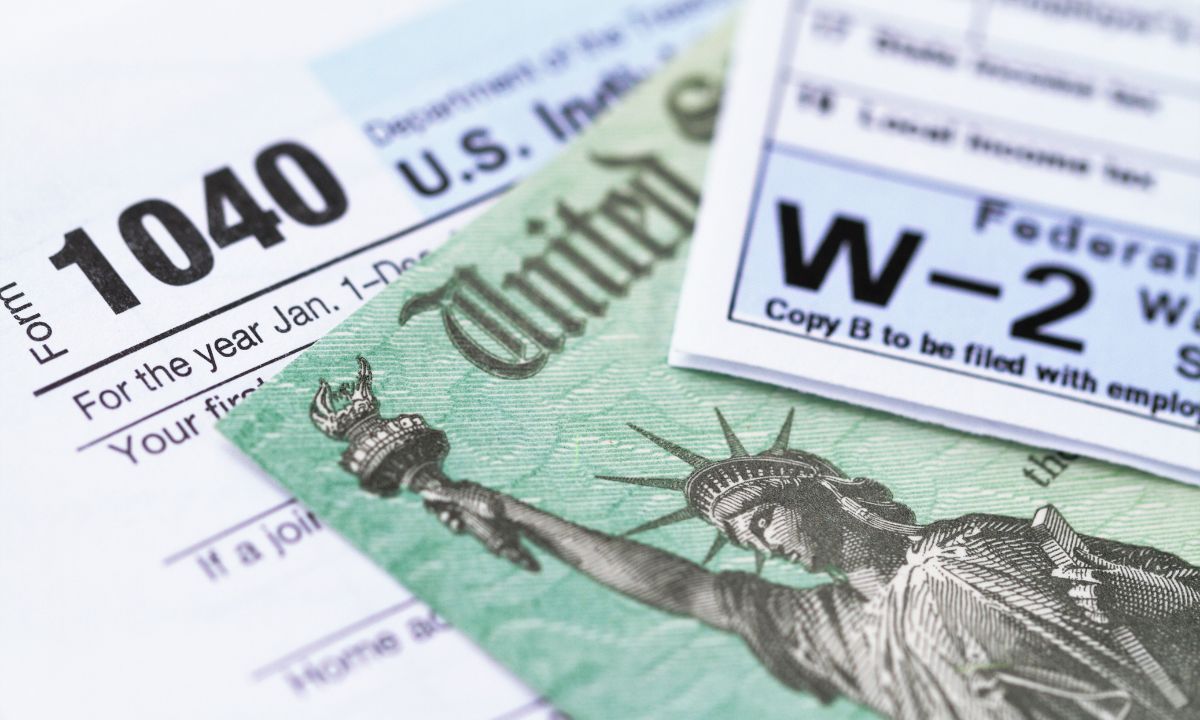 When you are preparing to buy a home, tax season should be on your radar as it plays a significant role in your mortgage application process. Whether you’re a first-time homebuyer or a seasoned investor, how you file your taxes can have a direct impact on the mortgage you qualify for. Understanding this connection can help streamline the process and potentially save you money on your loan.
When you are preparing to buy a home, tax season should be on your radar as it plays a significant role in your mortgage application process. Whether you’re a first-time homebuyer or a seasoned investor, how you file your taxes can have a direct impact on the mortgage you qualify for. Understanding this connection can help streamline the process and potentially save you money on your loan.
How Tax Returns Impact Your Mortgage Application
The income reported on your tax returns is one of the most important factors in determining how much you can borrow for a home. For traditional mortgage loans, lenders typically rely on your reported net income (after deductions) to assess your ability to repay the loan. This means the way you file your taxes, including any deductions and write-offs, can significantly affect your borrowing power.
For example, if you are self-employed or earn income outside of a traditional salaried position, your tax returns will play a crucial role in assessing your qualifications. Let’s say your gross income for the year was $100,000, but you worked with your accountant to write off a substantial portion of that income for business expenses or other deductions. If those write-offs reduce your taxable income to $50,000, that’s the figure lenders will use to evaluate your eligibility for a loan.
It’s important to note that if your reported income is lower than you expected, alternative mortgage options, such as bank statement loans, may be available. These types of loans focus on your actual cash flow rather than relying solely on your tax returns. While bank statement loans may come with slightly higher interest rates or require a larger down payment, they could be a good option if your tax deductions are significant but you still want to access your home’s equity.
What If I Haven’t Filed My Taxes?
If you haven’t filed taxes, whether due to operating a cash-only business or another reason, you may still be able to qualify for a mortgage. There are alternative loan options such as bank statement loans or no-income-verification mortgages that do not require traditional tax documents. It’s essential to consult with a mortgage professional who understands your unique situation to determine which option is best for you.
What Do Lenders Look For on Your Tax Returns?
Lenders and underwriters closely examine specific line items on your tax returns to determine your ability to repay the loan. If you are self-employed, for instance, there are several expenses you may be able to add back to your net income to increase your qualifying amount. Here are some common items lenders adjust when reviewing your tax returns:
- Net Profit or Loss (Schedule C): This is the starting point for determining your income. If it’s positive, it adds to your borrowing potential, while a negative figure may require additional documentation or justification.
- Depreciation and Amortization: If you’re self-employed, any depreciation or amortization expenses from your business can typically be added back to your net income.
- Business Use of Home: If you work from home, a portion of your home-related expenses (mortgage interest, utilities, etc.) can sometimes be added back into your income.
- Depletion and Casualty Loss: These non-cash expenses can also be added back to your income.
- Meals and Entertainment: These may be subtracted from your income if they were claimed as business expenses.
These adjustments can increase your net income, which in turn can improve your chances of securing a better loan. Being mindful of these potential additions or subtractions can help you prepare your taxes in a way that maximizes your borrowing power.
Strategies for Homebuyers to Prepare Taxes for Mortgage Success
- Work with a Tax Professional: To ensure your taxes are filed correctly and optimally for a mortgage application, it’s crucial to work with an accountant or tax advisor who understands the mortgage process. They can help identify deductions that may not be beneficial for homebuyers and ensure that your financial picture is as strong as possible.
- Keep Detailed Records: If you’re self-employed or a small business owner, maintaining clear and accurate financial records throughout the year is essential. This will help make the tax preparation process smoother and prevent any discrepancies when it’s time to apply for a mortgage.
- Consider Your Tax Deductions: Before you file, consider how your tax deductions impact your overall income. If your deductions are significant, you may want to discuss with your tax professional whether it’s worth reducing them to increase your income for mortgage qualification purposes.
- Prepare for a Tax Return Review: Be ready for your lender to carefully scrutinize your tax returns and potentially adjust your reported income. The more organized and transparent you are with your tax documents, the easier the process will be.
Tax preparation is a key step in the home-buying process, especially for self-employed individuals and those with non-traditional income sources. How you file your taxes can influence your mortgage application outcome, so taking the time to optimize your tax return before applying for a mortgage can be a game changer. Give us a call to find out more on understanding how taxes affect your borrowing power.
 Paying your income taxes each year leaves your wallet a bit thin? There may be money hiding in your home that lessens your tax burden. Here are four places to look:
Paying your income taxes each year leaves your wallet a bit thin? There may be money hiding in your home that lessens your tax burden. Here are four places to look:
 When you are preparing to buy a home, tax season should be on your radar as it plays a significant role in your mortgage application process. Whether you’re a first-time homebuyer or a seasoned investor, how you file your taxes can have a direct impact on the mortgage you qualify for. Understanding this connection can help streamline the process and potentially save you money on your loan.
When you are preparing to buy a home, tax season should be on your radar as it plays a significant role in your mortgage application process. Whether you’re a first-time homebuyer or a seasoned investor, how you file your taxes can have a direct impact on the mortgage you qualify for. Understanding this connection can help streamline the process and potentially save you money on your loan. Retirement is a significant milestone in one’s life, symbolizing the culmination of years of hard work and dedication. As individuals approach this stage, meticulous planning becomes imperative to ensure a comfortable and financially secure future. Among the plethora of retirement planning options, real estate emerges as a challenging player, offering unique advantages that can enhance the overall strategy. Let’s discuss the pivotal role that real estate plays in retirement planning and why it deserves a prominent place in your financial portfolio.
Retirement is a significant milestone in one’s life, symbolizing the culmination of years of hard work and dedication. As individuals approach this stage, meticulous planning becomes imperative to ensure a comfortable and financially secure future. Among the plethora of retirement planning options, real estate emerges as a challenging player, offering unique advantages that can enhance the overall strategy. Let’s discuss the pivotal role that real estate plays in retirement planning and why it deserves a prominent place in your financial portfolio.